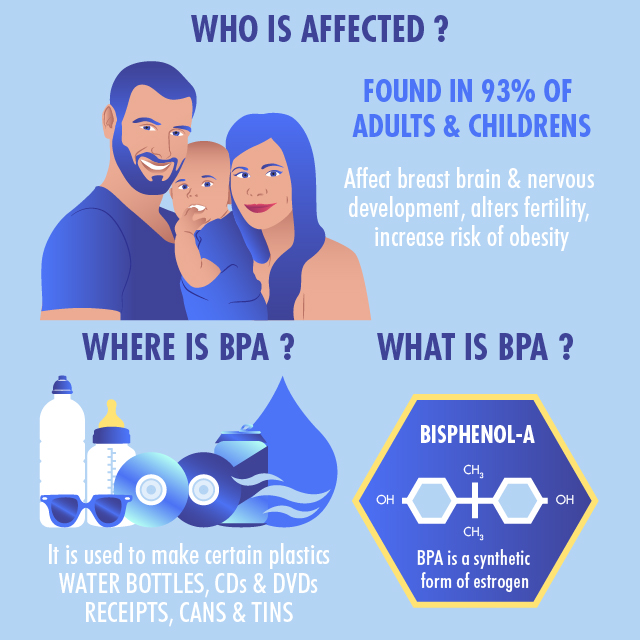Pharmaceutical pollution brings emerging contaminants getting into water system.
Endangering the reproductive system of human.


Bisphenol A (BPA) is a controversial issue nowadays because it is harmful to human and the environment. For example, lots of baby bottles with BPA may endanger the health of babies. It’s important to consider BPA since the risk of it is not yet comprehensively understood. The worst-case scenario is that our drinking water is already polluted by BPA but we don’t know.
- Bisphenol A is a kind of emerging contaminants and is an organic synthetic compound that is a xenoestrogen, exhibiting estrogen-mimicking, hormone-like properties. BPA is usually used to make certain plastics and epoxy resins. BPA-based plastic is clear and tough, and is made into a variety of common consumer goods, such as water bottles, sports equipment, CDs and DVDs.
What is Bisphenol A
- Epoxy resins containing BPA are used to line water pipes, as costings on the inside of many food and beverage cans. On the other hand, people always flush unused or expired medication down the toilet or drain. However, medicine-return arrangements are not widely promoted and people are not used to recycle unused or expired medication. As a result, chemicals get into surface water, lakes, or rivers.
- According to the scientific literatures sponsored by the US Government, BPA at concentrations found in the human body is associated with organizational changes in the prostate, breast, testis, mammary glands, body size, brain structure and chemistry, and behaviour of laboratory experiments. BPA is dangerous because it mimics estrogen, a naturally occurring hormone, and can affect the body’s endocrine system, which adversely affects brain and nervous system development, growth and metabolism, and the reproductive system.
- Sewage treatment plants are not currently designed to remove pharmaceutical from water. Some research showed that sewage treatments don’t have much effect on removing all medication, such as carbamazepine and diclofenac. Chlorine is used to kill bacteria and other pathogens, but it also seems to degrade or remove acetaminophen, codeine, and the antibiotic sulfathiazole. Perhaps we drink water with BPA every day, could it be that there is no method to remove BPA from water? So far, there is water filtration with high technology which can remove BPA from water. It’s important to choose a filter based on NSF/ANSI 401- Testing for Emerging Contaminants. Only those water filters with NSF/ANSI401 certification are able to remove BPA, such as WATPURE water filters.
Contributing to pharmaceutical water pollution
Potential interference with the function of hormones in the body
Choosing a Water Filtration which can remove BPA
https://www.watpure.com/index.php